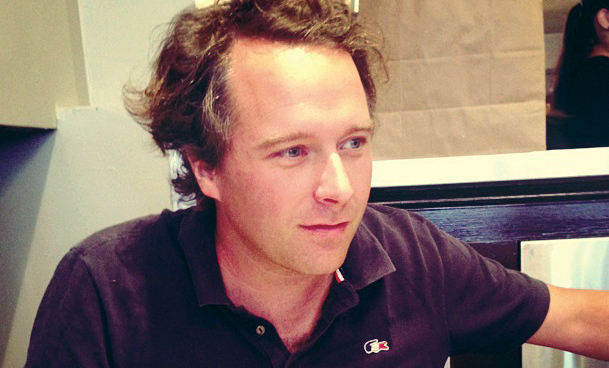New American Poets
New American Poets: Dan Chiasson

The Elephant
How to explain my heroic courtesy? I feel
that my body was inflated by a mischievous boy.
Once I was the size of a falcon, lion-sized I was,
once I was not the elephant I find I am.
My pelt sags, and my master scolds me for a botched
trick. I practiced it all night in my tent, so I was
somewhat sleepy. People connect me with sadness
and, often, rationality. Randall Jarrell compared me
to Wallace Stevens, the American poet. I can see it
in the lumbering tercets, but to my mind
I am more like Eliot, a man of Europe, a map
of cultivation. Anyone so ceremonious suffers
breakdowns. I do not like the spectacular experiments
with balance, the high-wire act and cones.
We elephants are images of humility, as when we
undertake our melancholy migrations to die.
Did you know, though, that elephants were taught
to write the Greek alphabet with their hooves?
Worn out by suffering, we lie on our great backs,
tossing grass up to heaven—as a distraction, not a prayer.
That's not humility you see, on our long final journeys:
that's procrastination. It hurts my heavy body to lie down.
"The Elephant" by Dan Chaisson. All rights reserved. Reprinted with the permission of the author.
I won't bore you with my theories about why poets my age tend not to like Robert Lowell. I'll just say a few things about why I find his late, little-known poem "Suburban Surf" to be sublime, almost bottomlessly inspiring, inexhaustible as a source for the idiom I need, the key I need, when I intend to write. I know no poem of comparable linguistic constriction that nevertheless reaches for and attains such breadths of lyric beauty. In its alternating civility and fear it seems equal parts compass and wilderness. The intelligence governing this poem is so severe as to find speech itself somehow miscarrying, misleading. Sentences begin and trail off; insights are sketched and abandoned. The poem is about a couple in bed, but its sense of genre is so canny and natural that to call it an aubade feels foolish. Lowell knows the value of grammatical and lexical waywardness: he describes the cars outside his window as "always very loud enough to hear" and that misplaced "very," for me, is worth ten thousand words placed properly. The penultimate stanza implies myth, history, philosophy, ethics, and several other discourses it feels no need to include explicitly. It is more interesting to me than entire careers of more obviously or programmatically "post-modern" poets, because of its authentic traffic in these discourses. Here it is: "In noonday light,/ the cars are tin, stereotype and bright,/ a farce/ of their former selves at night--/ invisible as exhaust,/ personal as animals." My own poems resemble Lowell not at all; our temperaments differ, our experiences differ, and his project is so thoroughly realized that imitation feels seriously dangerous. But if I am able to write something even half so beautiful, so wised-up about the world, so simultaneously severe and delicate in its relation to language and person, I will die a happy man.


